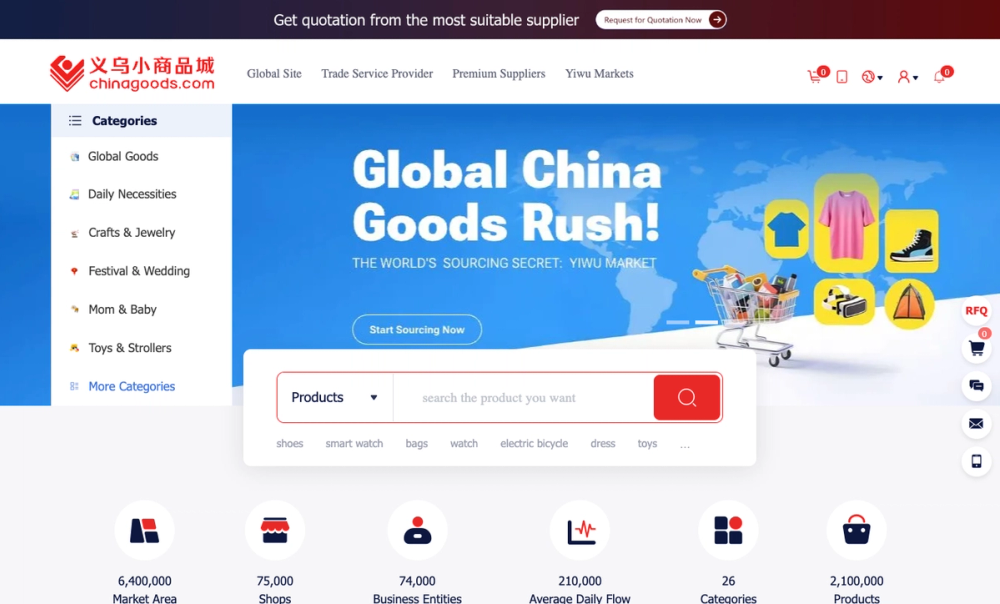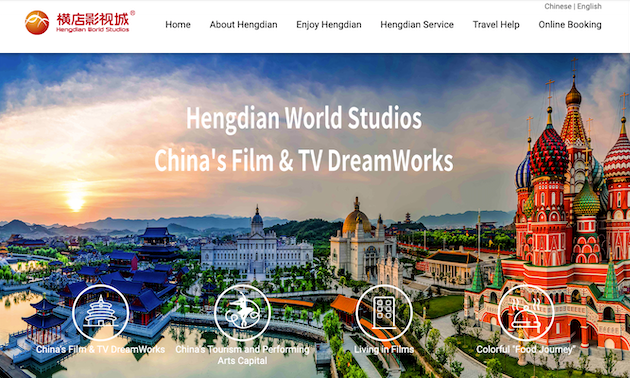Overview
The Yiwu International Trade Market, located in Zhejiang Province, China, is a cornerstone of global commerce. Established in 1982, it has evolved from a modest local market into a sprawling complex spanning 6.4 million square meters across five districts, hosting 75,000+ stores and 2.1 million+ products. Recognized by the UN as the world’s largest small commodities hub, it serves 230+ countries, with daily footfall exceeding 200,000 visitors.
Key Features
-
Scale & Diversity:
- Districts: Each of the five districts specializes in distinct categories:
- District 1: Toys, jewelry, artificial flowers.
- District 2: Hardware, electronics, luggage.
- District 3: Stationery, sports gear, cosmetics.
- District 4: Textiles, socks, knitwear.
- District 5: Imported goods, bedding, auto parts.
- Products: From festive decorations to 3D-printed toys, it covers 26 major categories, ensuring "one-stop" sourcing.
- Districts: Each of the five districts specializes in distinct categories:
-
Global Connectivity:
- Logistics: The Yiwu-Europe freight train links 50+ countries, while 20+ international routes streamline exports.
- E-Commerce: Platforms like Chinagoods AI facilitate digital trade, with 2024 transactions hitting $32 billion.
-
Innovation & Services:
- Facilities: Central air conditioning, multilingual support, and FDI services cater to international buyers.
- Tourism: A 4A-rated attraction, it blends shopping with cultural experiences (e.g., dragon dances during festivals).
Economic Impact
Yiwu’s market drives regional growth, supporting 32 million jobs globally. Its 2023 trade volume surpassed $28 billion, with 60%+ exports. The 2024 State Council reforms further boosted its role in cross-border e-commerce and import trade.
Cultural & Historical Context
Rooted in Silk Road heritage, Yiwu transformed from an agricultural town into a trade titan via 1980s reforms. Today, it embodies China’s "open-door" policy, hosting 15,000+ foreign merchants.
Visitor Tips
- Hours: 9:00–17:00 (best after 10:00).
- Payment: Cash/WeChat/Alibaba Pay; bargaining is common.
- Transport: Light rail connects to Yiwu Station; taxis cost ~$1.5 from airports.
Future Outlook
Plans include expanding digital trade (e.g., VR showrooms) and enhancing the "Yiwu Goodies" tourism IP.
In summary, Yiwu International Trade Market is more than a marketplace—it’s a microcosm of globalization, innovation, and cultural exchange, making it indispensable for global traders and travelers alike.


